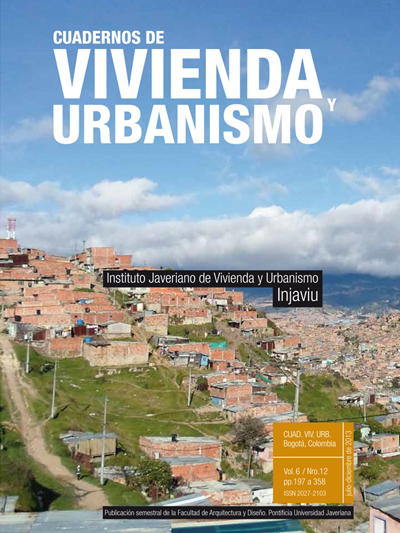Abstract
This text stares at the interventions made by the municipality of Medellin in the so called linear parks. The aim is to interpret dwelling in relation to what is conceived, perceived and lived, in seeking to bring to discussion and evaluation the concordances between the state vision and appropriations and meanings of the actors who use these parks daily. In this research, the theory of the trialectics of spaciality raised by Henri Lefebvre (1991), who studies the space through "the conceived, perceived and lived", was fundamental. What was lived refers to the "domestication of public space", understood as exclusive daily practices of housing which are extended into public space. One of the objectives in the empirical stage was to understand how the house manages to permeate the urban space through domestic dynamics and their significance.
This journal is registered under a Creative Commons Attribution 4.0 International Public License. Thus, this work may be reproduced, distributed, and publicly shared in digital format, as long as the names of the authors and Pontificia Universidad Javeriana are acknowledged. Others are allowed to quote, adapt, transform, auto-archive, republish, and create based on this material, for any purpose (even commercial ones), provided the authorship is duly acknowledged, a link to the original work is provided, and it is specified if changes have been made. Pontificia Universidad Javeriana does not hold the rights of published works and the authors are solely responsible for the contents of their works; they keep the moral, intellectual, privacy, and publicity rights.
Approving the intervention of the work (review, copy-editing, translation, layout) and the following outreach, are granted through an use license and not through an assignment of rights. This means the journal and Pontificia Universidad Javeriana cannot be held responsible for any ethical malpractice by the authors. As a consequence of the protection granted by the use license, the journal is not required to publish recantations or modify information already published, unless the errata stems from the editorial management process. Publishing contents in this journal does not generate royalties for contributors.


